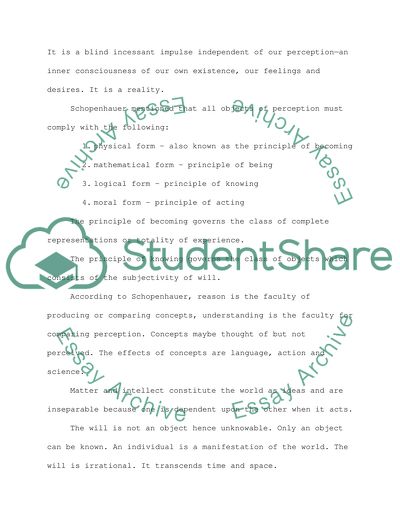Cite this document
(“Schopenhauer's will Essay Example | Topics and Well Written Essays - 2000 words”, n.d.)
Schopenhauer's will Essay Example | Topics and Well Written Essays - 2000 words. Retrieved from https://studentshare.org/miscellaneous/1525286-schopenhauers-will
Schopenhauer's will Essay Example | Topics and Well Written Essays - 2000 words. Retrieved from https://studentshare.org/miscellaneous/1525286-schopenhauers-will
(Schopenhauer'S Will Essay Example | Topics and Well Written Essays - 2000 Words)
Schopenhauer'S Will Essay Example | Topics and Well Written Essays - 2000 Words. https://studentshare.org/miscellaneous/1525286-schopenhauers-will.
Schopenhauer'S Will Essay Example | Topics and Well Written Essays - 2000 Words. https://studentshare.org/miscellaneous/1525286-schopenhauers-will.
“Schopenhauer'S Will Essay Example | Topics and Well Written Essays - 2000 Words”, n.d. https://studentshare.org/miscellaneous/1525286-schopenhauers-will.


